Epiphany Meditation Such a great afternoon yesterday, when I drove up through a balmy and sunny Monmouthshire landscape into the ancient Welsh Kingdom of Ergyng where Belmont Abbey is in modern Herefordshire. Belmont, I understand was originally built as the Cathedral for Newport. We had already been to a lovely Mass at Abergavenny but after the frenetic rushing around before and after Christmas, the Meditation at Belmont, which included two Spanish carols, which were movingly sung by Father Abbot and one of the brothers from Peru who was spending Christmas and Epiphany at the Abbey.
Una estrella que llama en la noche and De Luz nueva se viste la terra.
The parish choir sang some lovely things, the Epiphany Hymn, 'How Brightly Shines the Morning Star' and a 'Untous a child is born' not the usual 'puer nobis nascitur from 'Piae Cantiones' but a more unusual version, with a rrefrain for the congregation. There were some beautiful prayers from ancient liturgies of Our Lady.These meditations, were of extraordinary beauty and insight, and were interspersed with the carols you might expect, 'Bethlehem of Noblest Cities', 'As with gladness men of Old', 'We three Kings', 'O Worship the Lord in the Beauty of Holiness', and the 'First Nowell'. The organist delighted with the testing chorale Prelude:' Wie Schoen leuchtet der Morgenstern' (How brightly shines the Morning Star' by Bach played I believe by Mr Tom Hempson. Amongst the shimmering candles and rich decorations, the relaxed and quiet mood made this an inspirational hour, quite different from Christmas excitement, and getting to the heart of the miracle of Christ coming to the gentiles, drawing the Whole world to theFather. The liturgical chants were especially moving in this setting. Ecce advenit , Vidimus stellam eius (We have seen his Star) rang around the Abbey, as it has been sung over the centuries by our Benedictine Monks.It occurred to me that the highlight of the BBC's surprisingly (on the whole) faithful 'Nativity' TV series last year curiously finished with the Wise Men, (they were not neccessarily kings, nor three,) bowing before the Infant God-Man , Christ the Child. The line in one of the Belmont hymns, 'Bow down before Him, His Glory proclaim' seemed apposite and moving. We were able to reflect, the Lamb was born in a cave, associated with Shepherds. He was born in Bethlehem, which means THE TOWN OF BREAD and placed within a MANGER (an eating place for the animals) Both heavily pointing to the Eucharist. The quiet atmosphere allowed these insights and all was beautifully done.Remembering the birth of my own son, I thought of Mary, poor girl, nine months pregnant having to ride all those miles on a donkey and give birth in a lowley animal shed.
Afterwards people took the trouble to walk around the wonderful displays, especially the crib above and take photographs, as well as to pray prayers of thanks for the grace of such a wonderful meditation in beautiful surroundings. The faith and love of the monks, is shown in the tremendous care they take in carefully preparing the whole church for the feast, slightly after the Twelfth Night, and yet still in Christmastide, which the church will continue to celebrate until Candlemas on February 2nd. Refreshments, pies, biscuits and drinks of various kinds were available for the considerable congregation afterwards. I walked out past the crib the monks had built outside the Abbey, the beautiful words and sounds ringing in my head and felt greatly blessed!
Abbot Paul was kind enough to send me his sermon of the morning, in which he offered some reflections on the Epiphany, which I will lay down for you here so you can share them, and I am looking into a podcast of this lovely event.
The poem below is one of my favourite Epiphany poems, along with 'The Burning Babe' and 'The Journey of the Magi' by T S Eliot.
BC:AD by U.A. Fanthorpe
This was the Moment, When Before turned to After
And Time's unelected Timekeepers presented Arms.
This was the Moment, when Nothing Happened
Only dull peace sprawled boringly over the earth.
This was the Moment, when even energetic Romans
Could think of nothing better to do
Than counting heads in remote provinces.
And this was the Moment, when a few farm workers
And three Members of an obscure Persian sect
Walked haphazard, by Starlight
Straight into the Kingdom of Heaven.
 Christmas Display under the stained glass window of Benedictine Abbot , Blessed Richard Whiting of Glastonbury, who was hung drawn and quartered on the orders of Henry VIII.
Christmas Display under the stained glass window of Benedictine Abbot , Blessed Richard Whiting of Glastonbury, who was hung drawn and quartered on the orders of Henry VIII.The traditional Announcement of Easter in the Roman Missal reminds us of the centrality of the Feast of the Epiphany to the Christian faith and the liturgical year. This proclamation is made not on the First Sunday of Advent nor on Christmas Day but on the Epiphany, the great feast of Light, Easter in winter. “Arise, shine out, Jerusalem, for your light has come, the glory of the Lord has risen upon you, though night still covers the earth and darkness the peoples.”
Although the Epiphany recalls and celebrates the triple manifestation or revealing of the Son of God as recorded in the New Testament: the Star and the Magi, his Baptism in the Jordan and the miracle at the Wedding Feast of Cana, today’s Gospel concentrates on the first of those events. Yesterday we heard how Jesus transformed water into wine at the behest of his Mother, the first miracle or sign, which would ultimately lead to his Death and Resurrection and the Eucharist in which wine becomes the Blood that was shed on the Cross. Tomorrow we will hear the testimony of St John the Baptist, a vision of the Trinity in which the Father’s voice is heard, the Spirit is seen descending upon Jesus in the form of a dove and his identity is revealed, “This is my Son, the Beloved; listen to him.”
Today’s Gospel story is sheer magic. From its first appearance 2,000 years’ ago to the present day it has blown the minds and fired the imagination of countless writers and poets, artists and musicians, and of entire nations and cultures.
It can only have been the Protestant Reformation and the Puritan abolition of all popular religious customs in this country that has denuded Great Britain of the many wonderful traditions we meet all over Europe and the Middle East, not to mention those countries on other continents where Catholic, Orthodox and other ancient Christian Churches have taken root. For them all the Epiphany far outweighs Christmas in importance and tradition. We also recall that in the early Church it was only at Epiphany and Easter that people, young and old, were baptised and made members of God’s family.
We all know that much Old Testament imagery lies behind the story of the Magi and the Star. In Matthew’s mind it becomes an anticipation of the fate of the good news of salvation, a fate that he knew so well in the light of the ResurrectionBy the time he writes his gospel the Church has become predominantly Gentile, so the believers attracted to the good news of God incarnate are Gentiles just like the Magi. It is through nature that God reveals himself to the Gentiles, and to the Magi through astrology, but it is an imperfect revelation. Without the help of the Jewish scriptures they are unable to interpret the revelation, hence the need to ask, “ Where is the infant King of the Jews? We saw his star as it rose and have come to do him homage.” Ironically it is King Herod who provides the answer after consulting the chief priests and scribes. He sends them on to Bethlehem with the treacherous promise. “Go and find out all about the child and when you have found him, let me know, so that I too may go and do him homage.” The Gentiles come to worship the Saviour of the world, but they must learn from the Jews the history of salvation.
Here Matthew highlights the paradox: those who have the Scriptures, and can understand what the prophets have said, are not willing to worship the newborn king. They reject the Messiah and seek his death. Here we see the essential gospel story in miniature. God has made himself present to us in his Son, Emmanuel, yet this revelation, this Epiphany, was considered an offence and contradiction to many.
 On the other hand it was recognised as salvation by those who had eyes to see and hearts to believe. Of these the Magi are the first, the anticipation of all those who would come to worship the risen Christ proclaimed by the apostles.
On the other hand it was recognised as salvation by those who had eyes to see and hearts to believe. Of these the Magi are the first, the anticipation of all those who would come to worship the risen Christ proclaimed by the apostles.In the Star of the King of the Jews at its rising, they see in prophecy, hence the gifts of gold, frankincense and myrrh, the One whose kingship would not be fully visible until he had hung from the Cross, beneath the title “The King of the Jews”, and been raised to God’s right hand through the Resurrection
The question for us and for all Christians today is simply this: which road do I follow: that of King Herod and those who reject the truth of the Gospel, the light of faith, or that of the Magi and those who gradually make sense of divine revelation and can grasp what it means to be saved? In other words, what does the Epiphany mean to me?
by Abbot Paul Stoneham.
Our Lady of Belmont, Pray for us
Our Lady of Tintern, Pray for us
St David.... Pray for us
St Winifride... Pray for us











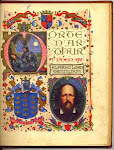







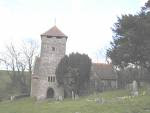
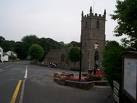


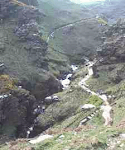

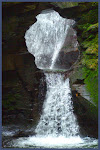


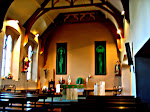









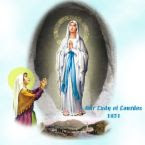


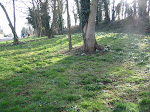

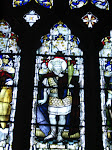
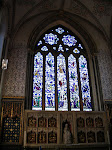
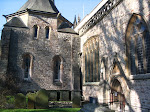
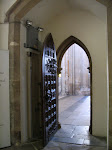
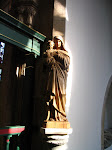


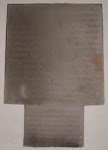



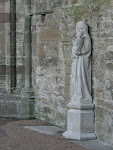









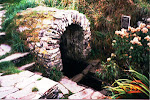


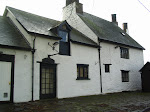
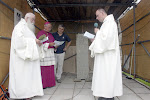



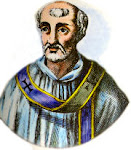





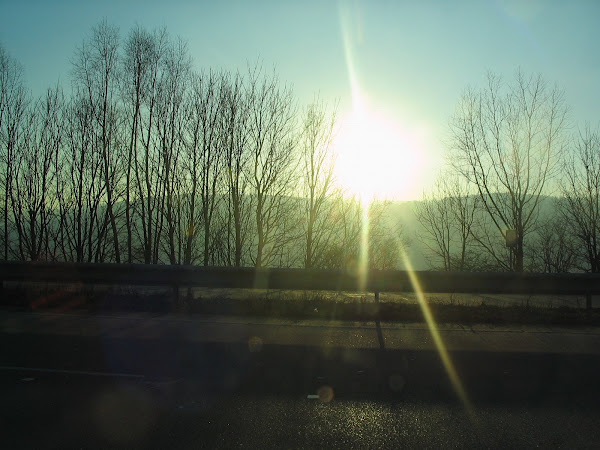


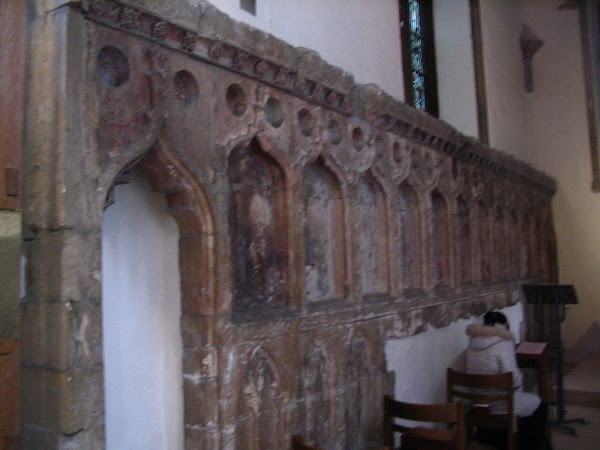
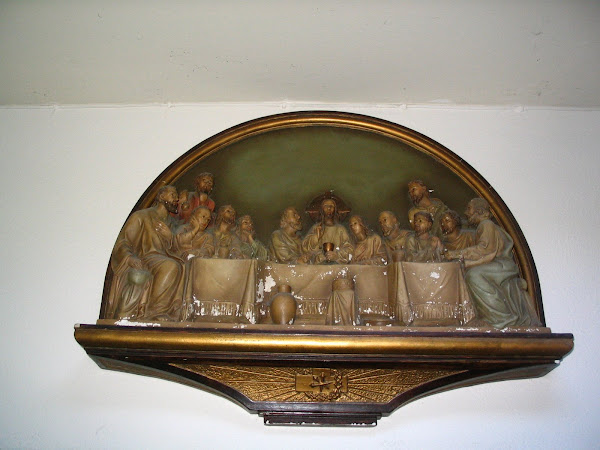




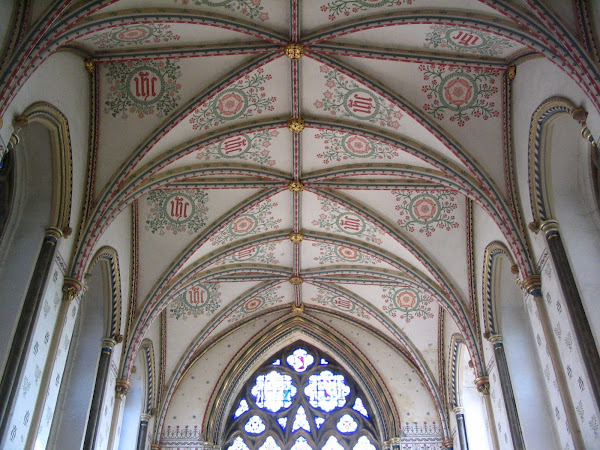


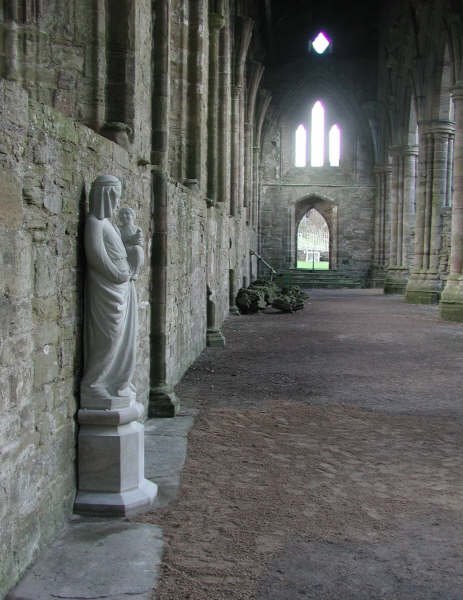
No comments:
Post a Comment